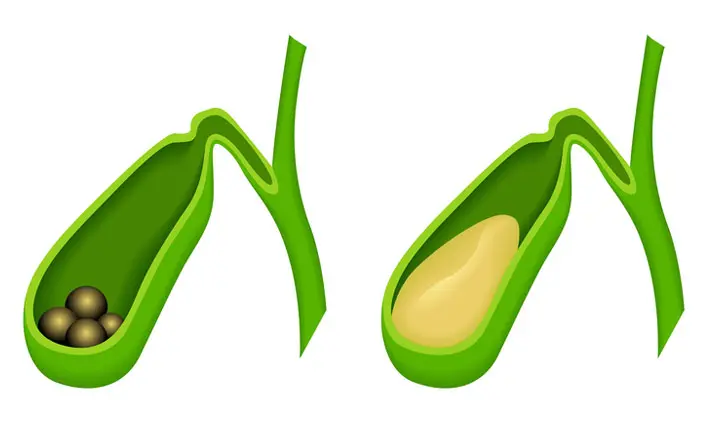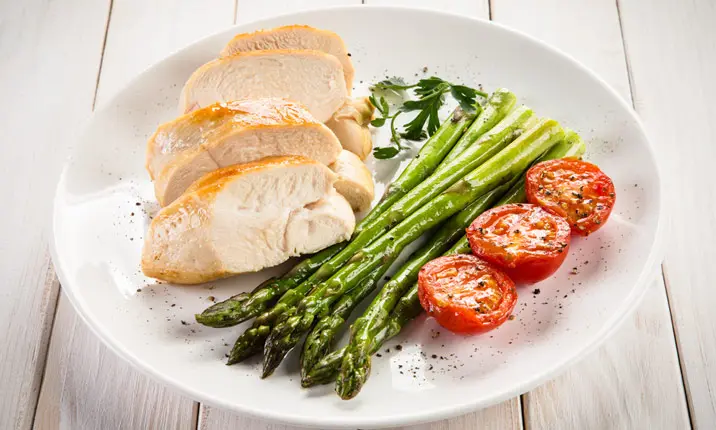If you experience persistent and severe abdominal pain from gallstones, your doctor may recommend to have your gall bladder removed. Speak to your doctor to discuss your surgery options, or make an appointment with a specialist.
Here, we look at some burning questions you may have about gall bladder removal and life after surgery:
What's the function of my gall bladder?
Your gall bladder is a small organ connected to the liver and other parts of your digestive system via a series of bile ducts. The main function of this organ is to store bile from the liver before it is released into the small intestine via the biliary tract.
Bile helps your body break down food and digest fat hence the gall bladder plays an important role in digestive health.
Why would I need to have my gall bladder removed?
Gallstones can affect your quality of life by causing symptoms such as pain, indigestion, nausea, diarrhoea, vomiting, fever or jaundice (yellowing of the skin and white of the eyes). It can also lead to infection or obstruction.
As a result, your doctor may recommend gall bladder removal, known as a cholecystectomy. This procedure is generally advised for symptomatic gallstones.
Can I live normally without a gall bladder?
Contrary to popular belief, you can live normally without a gall bladder. Without your gall bladder, your liver will release bile directly into the small intestine, and this allows your body to digest most foods normally.
Gall bladder removal side effects
As with every surgery, there may be some side effects that follow post-operation. Gall bladder removal does not cause any serious long-term problems, although you may experience some common minor side effects such as:
- Diarrhoea
- Flatulence
- Short-term constipation
These side effects will usually last for 3 – 6 months. To help manage and reduce the severity of these symptoms, stay on a low-fat diet and monitor your condition. After this, most patients will return to their normal status.
Remember to consult your doctor if your symptoms persist or get worse.
Life expectancy after gall bladder removal
Gall bladder removal does not shorten your life expectancy. In fact, it may even increase it as your post-surgery habits make it necessary for you to make healthier dietary choices.
Life after gall bladder removal: Diet, lifestyle changes and recovery
While gall bladder removal does not cause major complications, making appropriate lifestyle changes can help your recovery.
As your body adjusts to having no gall bladder, in the months after your operation, you should change your diet to the types of food that are easier for your body to digest. The good news is that the changes you make will encourage you to lead a healthier lifestyle.
Here are some tips:
Limit your fat intake
Fat will be more difficult to digest so you need to know what you are putting into your body and how much of it is hidden fat. Read food labels and avoid processed food when you can. Eating whole foods eliminates the guesswork from your meal plans. Choose foods that are boiled, baked, steamed or grilled food over fried and opt for low-fat choices when it comes to milk and cheese. Fat should make up only 30% of your diet.
Take frequent but smaller portions throughout the day
Your digestive system works slightly differently now so overwhelming it with too much food in one sitting will puts too much strain on your liver as it can't produce the amount of bile your body needs to digest the food. Divide your meals into smaller dishes every day that include lean meat or other non-processed protein sources, as well as fruit and vegetables.
Reduce the amount of fibre you take in
In the initial months after your surgery, you may find that eating high-fibre foods causes bloating, pain and diarrhoea. Limit your intake of foods like cauliflower, cabbage, beans, nuts, cereals and bread which can be difficult to digest, and introduce them slowly back into your diet one at a time until you can work out your limits.
Reduce your caffeine intake
Caffeine increases the production of stomach acid, which makes your stomach contents empty faster. Without the normal amount of bile in your stomach that used to be produced by your gall bladder, you will experience more gas, bloating and pain as the food is digested. Start to introduce coffee and tea back into your diet gradually to see how much you can handle.
Record what you eat
Being more aware and mindful of what you eat is going to help you recover more quickly and return to life as normal. To help you keep of track of what works and what doesn't, record your food intake, break down each type of food and how much you eat, and note the side effects that come up. Look for patterns so you can moderate your diet accordingly. This will help you to avoid or limit foods that cause digestive problems.
Overall, by eating smaller amounts of fats, oils, dairy products, and processed foods, you lose weight and reduce your risk of developing conditions such as high blood pressure, heart disease and diabetes. As you are also taking in fewer calories per day, your body will digest your food and use energy more efficiently.
In summary, your body can still function well without your gall bladder. Be mindful, though, to control your diet to avoid or limit food that will cause digestive issues. At the end of the day, introducing these healthy dietary habits into your lifestyle post-surgery will also benefit your overall health!
The improvement on your quality of life can be dramatic, so it's important to prioritise treatment if you need it.

